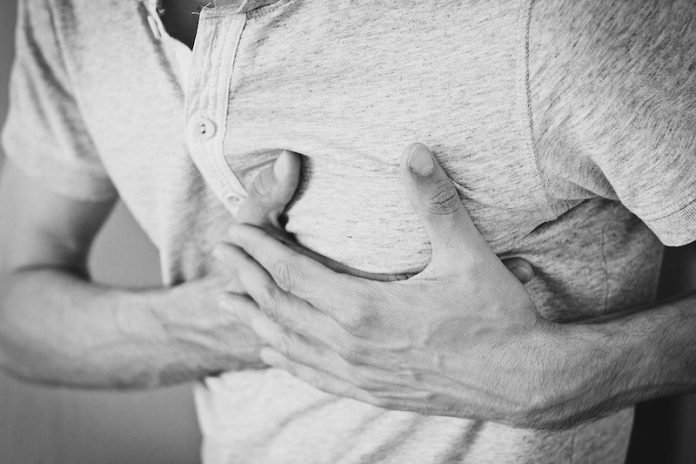
In a new study from Emory University, researchers found that young and middle-aged adults who reported severe psychological distress—such as depression or anxiety—after suffering a heart attack were more than twice as likely to suffer a second cardiac event within five years.
They also found inflammatory markers that appear to have a role in increasing cardiovascular risk among people experiencing distress.
The findings align with previous studies focusing on older adults, bolstering the evidence for mental health as an integral part of a person’s recovery after a heart attack.
In the study, the team analyzed health outcomes in 283 heart attack survivors between the ages of 18 and 61, with an average age of 51 years.
Study participants completed a series of validated questionnaires measuring depression, anxiety, anger, perceived stress and posttraumatic stress disorder within six months of their heart attack.
Within five years after their heart attack, 80 of the 283 patients suffered a subsequent heart attack or stroke, were hospitalized for heart failure or died from cardiovascular causes.
These outcomes occurred in nearly half (47%) of patients experiencing high distress compared to 22% of those experiencing mild distress.
Previous studies suggest inflammation is one mechanism through which psychological distress may lead to heart problems.
In the study, the team found patients who experienced high distress were also found to have higher levels of two inflammatory markers—interleukin-6 and monocyte chemoattract protein-1—in their blood during rest and after mental stress.
These markers, which increase during times of mental stress, are known to be linked to plaque buildup in the arteries and adverse cardiac events.
The team says those who have had a heart attack may be particularly vulnerable to plaque rupture as a result of these inflammatory mechanisms at play.
They suggest that cardiologists should consider the value of regular psychological assessments, especially among younger patients.
Equally importantly, they should explore treatment modalities for ameliorating psychological distress in young patients after a heart attack, such as meditation, relaxation techniques and holistic approaches, in addition to traditional medical therapy and cardiac rehabilitation.
If you care about heart attack, please read studies about taking these two drugs may protect you from heart attack and stroke and findings of common painkillers may lead to obesity, sleep problems, heart attacks.
For more information about heart attack treatment and prevention, please see recent studies about middle-aged adults with this mental problem may have a heart attack easily and results showing that this healthy food may lower heart attack, stroke risk.
The study was presented at the American College of Cardiology’s 70th Annual Scientific Session. One author of the study is Mariana Garcia, M.D.
Copyright © 2021 Knowridge Science Report. All rights reserved.




